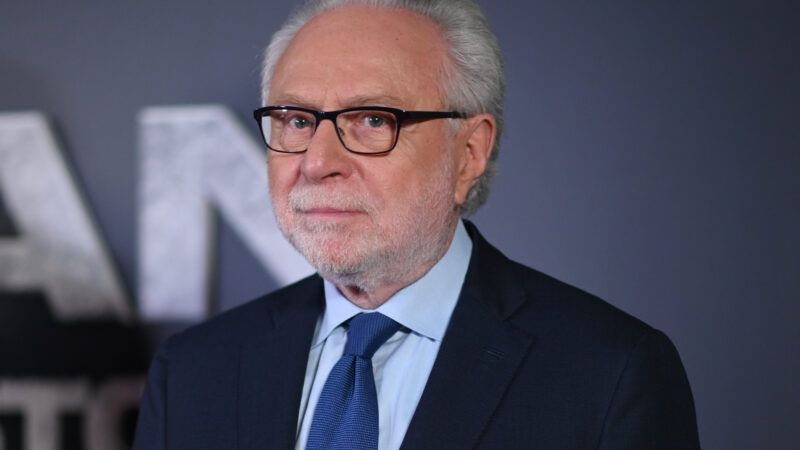CNN Panelist Claims That Donald Trump Caused Charlottesville Attack
The punch line: It was a panel on the dangers of misinformation.

National security officials, Democratic politicians, and media figures frequently list the dreaded scourge of misinformation as one of their top concerns. Mainstream news organizations incessantly warn their readers and viewers that right-wing provocateurs, Republican politicians, and foreign agents are flooding social media with falsehoods. Tech regulators all over the world—from Brazil to the European Union—are using the threat of misinformation as a pretext for censorship. In the U.S., the First Amendment makes it much more difficult for would-be censors to directly criminalize misinformation, though that won't stop politicians from trying; Democratic Vice Presidential candidate Tim Walz has already suggested—incorrectly—that misinformation and hate speech are not protected speech.
This claim is itself an example of misinformation, in that it is a false statement; the Supreme Court has steadfastly maintained that hate speech, for example, is protected by the First Amendment. Yet when mainstream Democrats express clearly incorrect statements, they seldom attract the misinformation label. This speaks to the one-sidedness of the concept—a one-sidedness that was perfectly illustrated during a CNN panel on Sunday.
The topic of the panel, ironically, was misinformation. CNN's Wolf Blitzer was interviewing former Homeland Security Secretary Jeh Johnson about how malicious lies being spread by right-wing actors are eroding trust in U.S. democracy. Blitzer invited several panelists to respond. Maria Cardona, a Democratic strategist, chimed in with a comment about former President Donald Trump.
"Let's remember Charlottesville," she said. "Let's remember January 6th. All of those events ended in tragedy and all of those events were spurred on and inspired by the words that came out of the former president's mouth."
CNN contributor Scott Jennings, a Republican, then interrupted Cardona to dispute that Trump's rhetoric caused the 2017 rally in Charlottesville, Virginia, where one person was killed and a dozen others injured by a white nationalist. Cardona doubled down, asserting that Trump "went out there and said both sides are good people."
"I do think he caused Charlottesville," she said. "Those people that were marching were marching in support of one person. They were marching in support of Donald Trump."
While discussing misinformation, Maria Cardona says Donald Trump inspired Charlottesville by saying the oft-used & debunked "good people on both sides" line, which happened after Charlottesville, anyway.
She then claims Democrat leaders didn't support anti-Israel rallies. pic.twitter.com/KytdgVu4uD
— Jason Rantz on KTTH Radio (@jasonrantz) November 4, 2024
These claims are flagrantly wrong.
Most obviously: Trump's rhetoric did not cause a group of white nationalists to organize a rally in Charlottesville. The controversy over Trump's remarks has to do with things that he said in response to the rally.
And there too, critics of Trump overreached. As the fact-checking website Snopes has concluded, Trump never said the neo-Nazis were very fine people—he said neo-Nazis and white nationalists "should be condemned totally." His "fine people on both sides" comment referred to the debate over whether it was a good idea to remove statues of problematic historical figures. And indeed, reasonable people can disagree about the wisdom of taking down statutes, and about which historical figures deserve new scrutiny.
It's perfectly fine to disagree with Trump's handling of the episode, or to think his condemnations did not go far enough. But no serious person has suggested that remarks by Trump are what spurred on the racism and violence in Charlottesville in 2017. The rally was organized by explicit white nationalists Jason Kessler and Richard Spencer for the purpose of protesting the removal of Confederate General Robert E. Lee's statue. Their efforts were not inspired by, or in defense of, Donald Trump.
At no point did Blitzer jump in to accuse Cardona of spreading misinformation. The job of correcting her was left to co-panelist Jennings. Remember: This was a panel ostensibly highlighting the toxic spread of misinformation.
This is the sort of flagrantly false assertion that the host would, in any other circumstance, interrupt and correct—especially, if, say, the speaker was a Republican. (Though conservative panelist @ScottJenningsKY did an admirable job of setting the record straight.)
— Robby Soave (@robbysoave) November 3, 2024
People spreading bad information, either accidentally or deliberately, is not new. It was happening on television, on the radio, in newspapers, in books, and in everyday conversation long before social media existed. Commentators who fixate on platforms they distrust or partisan actors they dislike frequently treat misinformation like an actual pathogenic disease, all while ignoring falsehoods that arise on their own side or treating those as mere differences of opinion.


Show Comments (39)